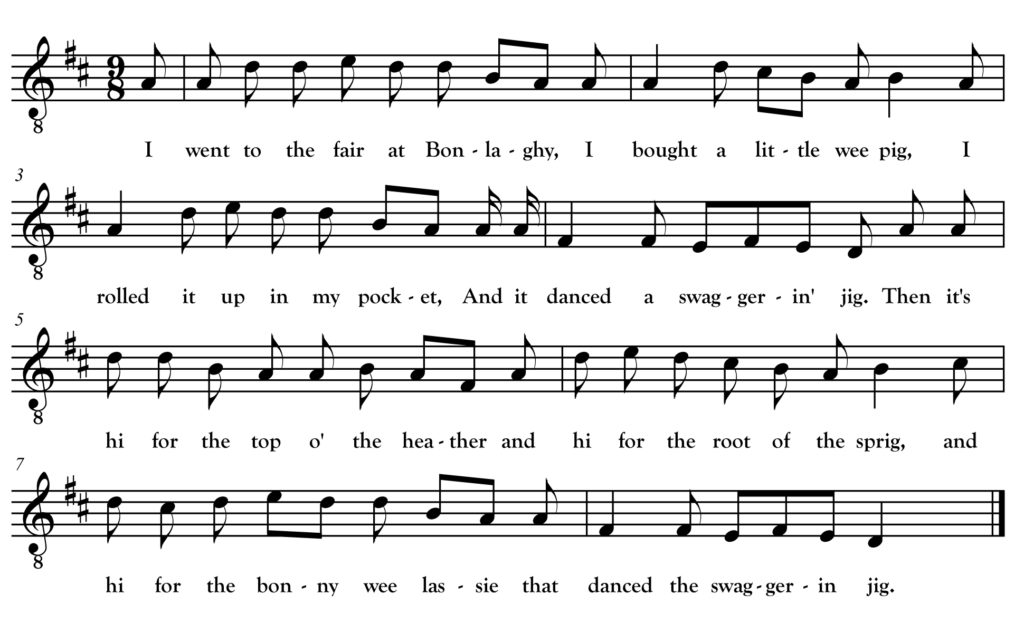Our Captain Says “Away”

Our captain says “Away, all hands, tomorrow,”
Leaving you girls behind in sad grief and sorrow,
Dry up those briny tears and don’t be a-weeping,
For so happy we will be, my love, at our next meeting.
She threw her arms abroad like one a-dying,
With the wringing of her hands, and a-crying and sighing,
“What makes you roam abroad a-fighting for strangers?
Oh stay at home with me, my love, and be free from dangers.
“When I had gold in store, you seemed to like me,
But now I am growing poor, you seem for to slight me,
You courted me awhile just for to deceive me,
And now my tender heart you have won you are going for to leave me.”
“Oh, fare you well, father, and fare you well, mother,
For I am your daughter dear and you have no other,
For to weep it is all in vain, for I am a-going,
To the lad that I so dearly love, the one who has proved my ruin.”
“There is no believing men, no, not your own brother,
There is no believing men, no, not your true lover,
Your favor they will gain, then turn to some other,
So, young girls, if you can love, be sure to love one another.”
Last month, I had the honor of attending the annual Getaway weekend of the Folksong Society of Greater Washington near Washington, DC as a guest. While there, I got to talk northwoods songs with DC area singers Lisa Null and Steve Woodbury. A couple years ago, Lisa and Steve introduced me to the wonderful repertoire of Maine singer Carrie Grover and gave me a copy of Grover’s “Heritage of Songs” book. Lisa was also partly responsible for Irish singer Paul Brady’s 1973 introduction to the Grover collection from which he adapted his iconic versions of both “Arthur McBride” and “The Jolly Soldier!” (see Northwoods Songs #66). While in DC, I decided to spend some time at the American Folklife Center at the Library of Congress listening to their large collection of recordings of Carrie Grover singing and playing fiddle.
How wonderful and insightful to hear these recordings! Carrie Grover (1879-1959) turns out to have been a very skilled singer with a store of complex and beautiful melodies and vocal techniques to match her rich repertoire. I fell in love with her singing and transcribed as many songs as I could from her 1941 session with collector Sidney Robertson.
Grover titles the above song “The False Lover” in her book. She learned it from her mother whose grandfather William Long came from Ireland to Nova Scotia where Carrie herself was born. Other than a version collected in Newfoundland by Kenneth Peacock, the song seems to have been found primarily in England where Martin Carthy and others have sourced their renditions of it. Most other versions I found use melodies similar to Grover’s though I find the freedom of her timing and some of her notes to be especially haunting. The above is my transcription of Grover with a few lines borrowed from the Newfoundland version.

